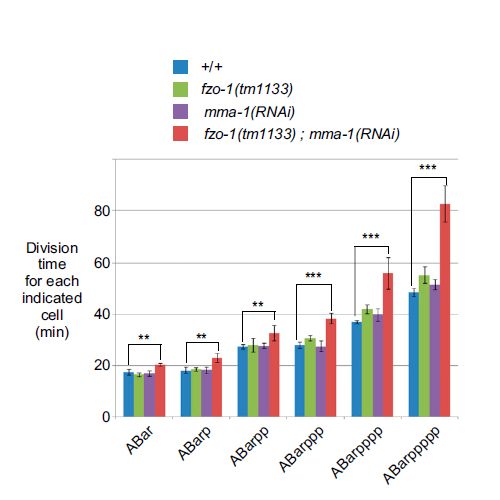Impaired complex IV activity in response to loss of LRPPRC function can be compensated by mitochondrial hyperfusion
22-Jul-2013
PNAS, 2013, doi: 10.1073/pnas.1303872110, vol. 110 no. 32 E2967-E2976 published on 22.07.2013
PNAS, online article
PNAS, online article
Mitochondrial morphology changes in response to various stimuli but the significance of this is unclear. In a screen for mutants with abnormal mitochondrial morphology, we identified MMA-1, the Caenorhabditis elegans homolog of the French Canadian Leigh Syndrome protein LRPPRC (leucine-rich pentatricopeptide repeat containing). We demonstrate that reducing mma-1 or LRPPRC function causes mitochondrial hyperfusion. Reducing mma-1/ LRPPRC function also decreases the activity of complex IV of the electron transport chain, however without affecting cellular ATP levels. Preventing mitochondrial hyperfusion in mma-1 animals causes larval arrest and embryonic lethality. Furthermore, prolonged LRPPRC knock-down in mammalian cells leads to mitochondrial fragmentation and decreased levels of ATP. These findings indicate that in a mma-1/LRPPRC–deficient background, hyperfusion allows mitochondria to maintain their functions despite a reduction in complex IV activity. Our data reveal an evolutionary conserved mechanism that is triggered by reduced complex IV function and that induces mitochondrial hyperfusion to transiently compensate for a drop in the activity of the electron transport chain.











